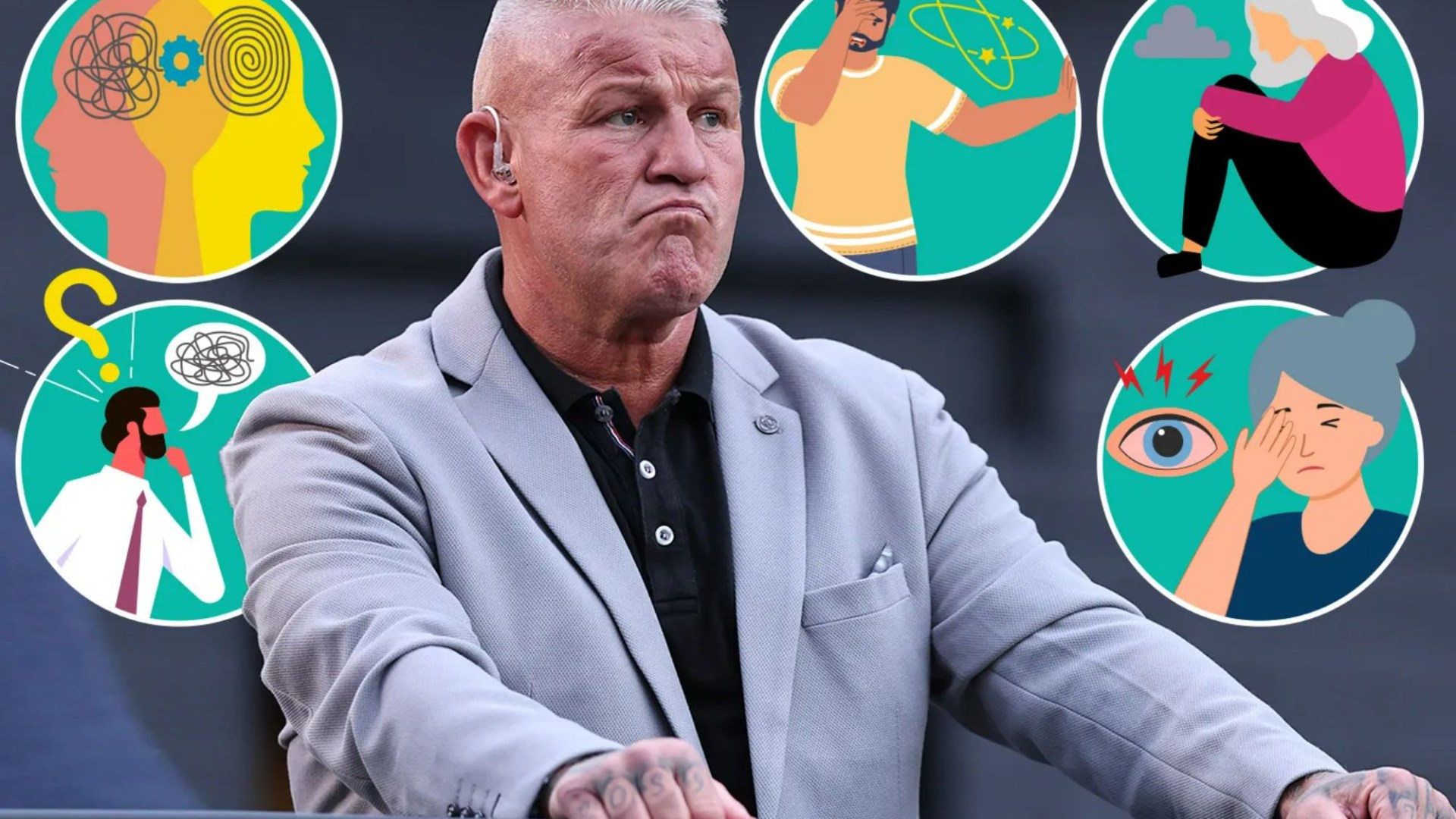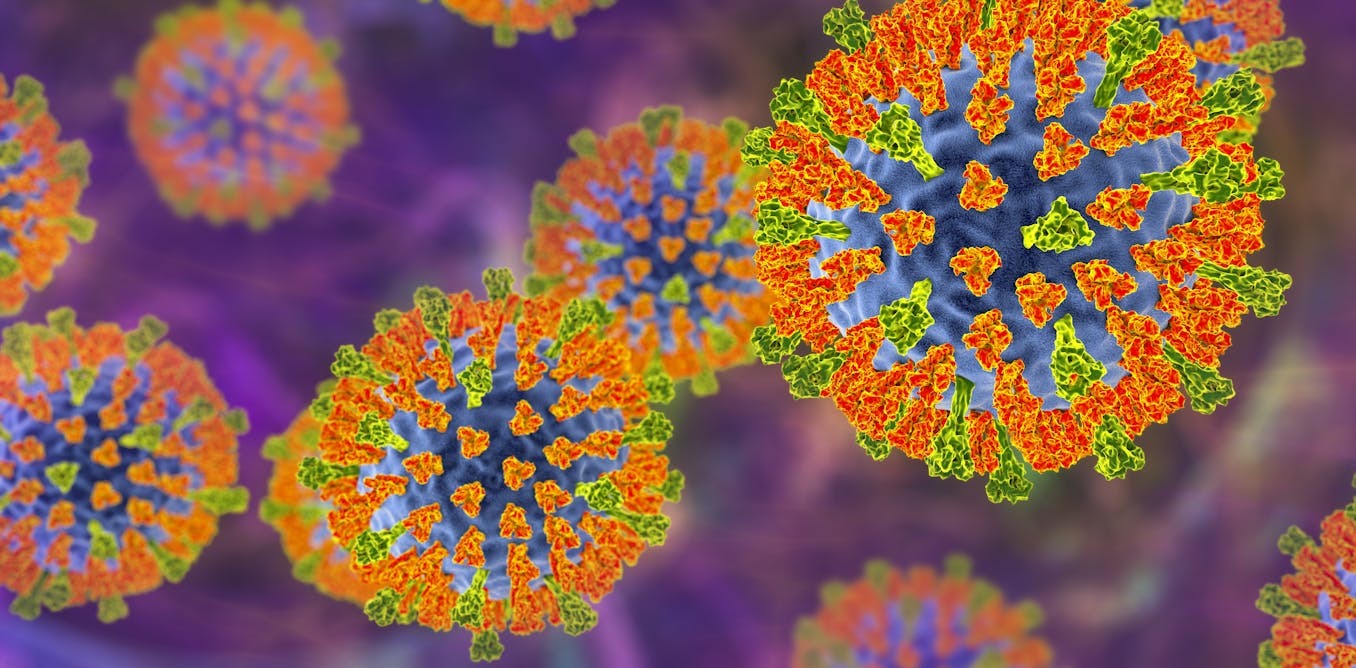FORMER Premier League star Dean Windass has been diagnosed with dementia at the age of 55 – a condition known as early-onset dementia.
With an increasing number of studies linking repeated head injuries from heading the ball to increased risk of dementia, players say more needs to be done to support those with the neurodegenerative disease.
4

4

4
Former Manchester United defender David May first shared news of Windass’ diagnosis on BBC Breakfast – with his permission – as he discussed growing concerns around dementia and football.
He said: “I only spoke to Dean Windass yesterday, ex-professional footballer. I asked Deano how he is. He’s been diagnosed with Stage 2 dementia.
“He’s the same age as me and he’s worried sick of how it’s going to be in the future for him.”
Speaking about his own dementia fears, May added: “Over my career, I probably headed the football about 20,000 times in total.
“It’s only coming to light now.
“I’d like to know where I’ll be in ten years’ time, will I have the care from the governing bodies, PFA, for funding that these families are not currently getting?
“It’s worrying. I’m worried, of course I am.
“I’ve got a family to look after and I don’t want my children looking after me day in day out.
“Care does cost a lot of money. Is there enough to care for future generations?
“One in three [footballers have the] possibility of getting dementia.
“The message needs to get out there.”
Dr Sheona Scales, Director of Research at Alzheimer’s Research UK, said there’s still more research needed to fully understand the link between football and dementia.
She said: “Our thoughts are with Dean Windass and his family, following the devastating news he is living with dementia.
“Dean is a football hero and has given fans countless unforgettable moments on the pitch. It is incredibly courageous of Dean and his family to share this news and help raise much needed awareness of dementia, a condition affecting almost one million people in the UK today.
“Research is advancing, but there is still more to do to fully understand the link between football and dementia.”
Early on-set dementia symptoms
Early-onset dementia, also known as young onset dementia, is dementia that develops in people under the age of 65.
Although dementia is thought of as a condition that is just associated with old age, it is estimated that around 70,800 people with dementia in the UK are under 65.
But many people aren’t aware of the signs of early-onset dementia, and it isn’t necessarily memory loss.
Dementia UK lists the symptoms of early onset dementia to look out for:
- Behaviour and personality changes
Becoming irritable or anxious, making irrational and out of character decisions or experiencing changes in mood
- Language and communication issues
Having difficulty finding words, slurring speech or noticing changes in handwriting.
- Movement and coordination problems
Being clumsy, experiencing issues with balance and losing mobility.
- Declining social and life skills
Struggling to complete tasks and meet deadlines at work, being unable to recall things or less willing to socialise or go out
- Visual perception and spatial awareness issues
Mis-reaching for objects in clear view, experiencing hallucinations or having difficulty judging distances
For the majority of people affected, the cause of early-onset dementia is a combination of lifestyle, genetic and environmental factors and is more likely to be inherited compared to late-onset Alzheimers (the most common form of dementia).
The link between football and developing dementia
Former football players have been found to be more likely to be diagnosed with dementia than the general population.
This is due to a number of factors, including head injuries and repeated exposure to brain trauma.
Alongside Windass, several other high-profile sports players have battled dementia.
The family of footballer Nobby Stiles, part of the England’s 1966 World Cup-winning team, believe his dementia was linked to his career, particularly heading the ball. He died aged 78 in 2020.
From the same team, Sir Bobby Charlton’s diagnosis and death in 2023, aged 86, has also been part of a broader conversation about the impact of heading the ball.
And American football player Mike Webster was one of the first high-profile cases of Chronic Traumatic Encephalopathy (CTE), a condition linked to repeated head traumas.
He died aged 50, in 2002, and his struggles with dementia and other cognitive issues were chronicled in the film “Concussion”.
Dr Scales said: “While heading the ball could be a contributing factor, it’s still possible that other aspects of players’ lives, on or off the pitch, may be a factor too.
“And while nearly half of global dementia cases may be linked to factors we can control, it’s important to remember that there are some risk factors for dementia, like age and genetics, that we can’t change.
“Strategies to reduce head impact and head injuries in certain sports are necessary to help prevent brain damage and reduce dementia risk for players.
“Limiting heading balls or high impact collisions are just a couple of examples of ways that could be used to protect players from head injuries.
“Dean’s experience underscores the need for strong guidelines from policymakers and sporting bodies, many of whom are aware of this issue and some have already begun implementing policies that are making protection from head injury a priority.
“At Alzheimer’s Research UK, we are determined to change the ending for everyone affected by dementia by finding a cure and the awful news about Dean highlights that we don’t have a moment to waste.”

4
The evidence so far
A study in 2023 found ex-footballers are three and a half times more likely to be diagnosed with dementia than the general population.
The study was commissioned by the Football Association and Professional Footballers’ Association, with more than 460 ex-pros taking part.
It found 2.8 per cent were diagnosed with dementia or other neurodegenerative diseases compared with 0.9 per cent of the general population – which was a 3.46 times higher rate.
Studies have shown repeated head injuries can lead to the build-up of proteins in the brain called tau, which disrupts normal function and leads to dementia symptoms.
But a study published this week suggested this could be because blows to the head trigger previously dormant viruses to become active, triggering inflammation and the formation of tau.
Concussion in sport: What action should you take?
Concussion is a common occurrence in sports like rugby and football.
Concussion is a traumatic brain injury caused by a direct blow to the head, neck or body resulting in an impulsive force being transmitted to the brain.
It results in a disturbance of brain function.
Concussion can present with a wide range of signs and symptoms.
The NHS says a person with concussion may:
- Lose consciousness
- Be confused
- Have a blank expression
- Take an unusually long amount of time to answer questions
- Struggle to balance
- Show inappropriate emotional responses, like laughing or crying without explanation
- Act out of character, like being unusually irritable
- Struggle to remember events before or after the injury
- Have a headache
- Feel dizzy, nauseous (sick), stunned or dazed
- Have problems with their sight, like “seeing stars” or having blurry vision
There are guidelines for what you should do for a suspected concussion.
The Football Association says:
- Anyone with a suspected concussion must be immediately removed from play in a safe manner
- Once safely removed from play they must not return to activity that day.
- If a neck injury is suspected, suitable guidelines regarding the management of this type of injury at pitch side should also be followed (see useful links for pitch side injury management training).
- If ANY of the following are reported then the player should be transported for urgent medical assessment at the nearest hospital emergency department:
- Severe neck pain
- Deteriorating consciousness (more drowsy)
- Increasing confusion or irritability
- Severe or increasing headache
- Repeated vomiting
- Unusual behaviour change
- Seizure (fit)
- Double vision
- Weakness or tingling
- Burning in arms or legs
In all cases of suspected concussion, it is recommended that the player is referred to a medical or healthcare professional for diagnosis and advice, even if the symptoms resolve
Reducing your risk of early-onset dementia
While there is no known way to prevent early-onset dementia, you can reduce your risk by making healthy lifestyle choices.
Be active – Try to get at least 150 minutes of moderate-intensity physical activity each week. This can include aerobic exercise, strength training, or daily activities like cleaning or gardening.
Keep mentally active – Keep your mind active by reading, playing games, learning new skills, or volunteering.
Stay socially connected – Stay connected with friends and family to prevent social isolation.
Eat a healthy diet – Eat a Mediterranean-style diet that’s high in fruits, vegetables, whole grains, and healthy fats.
Sleep well – Get enough high-quality sleep each night.
Manage chronic health conditions – Treat high blood pressure, high cholesterol, diabetes, and other health issues.
Quit smoking – Smoking can damage blood vessels in the brain and increase your risk of dementia.
Treat hearing loss – Hearing loss can make it harder to interact with others and may increase your risk of dementia.




